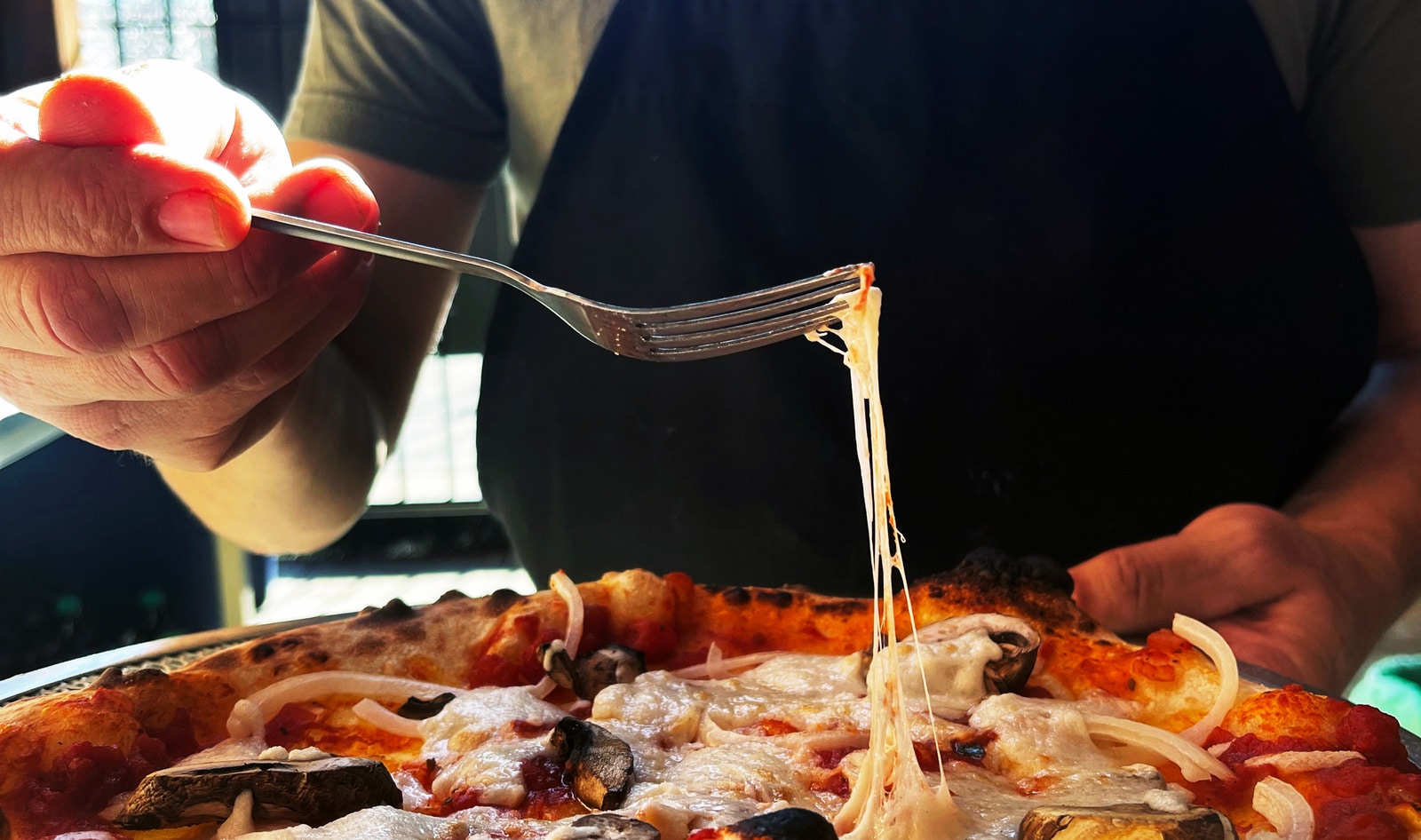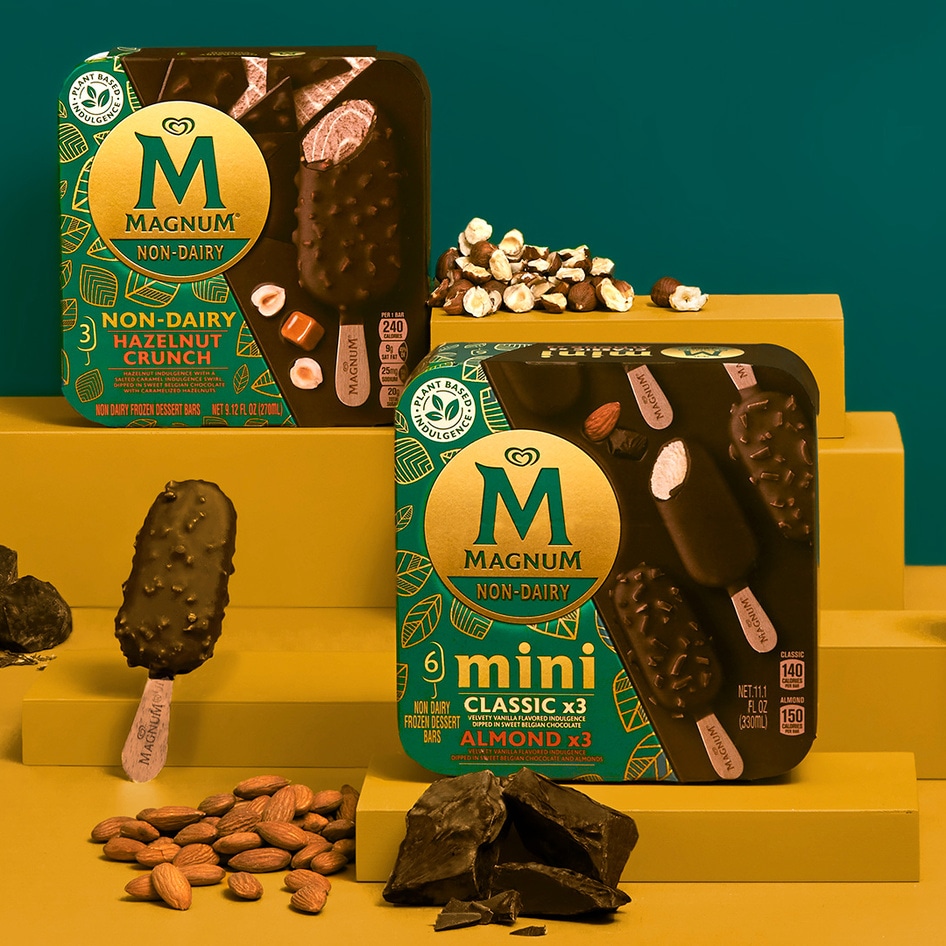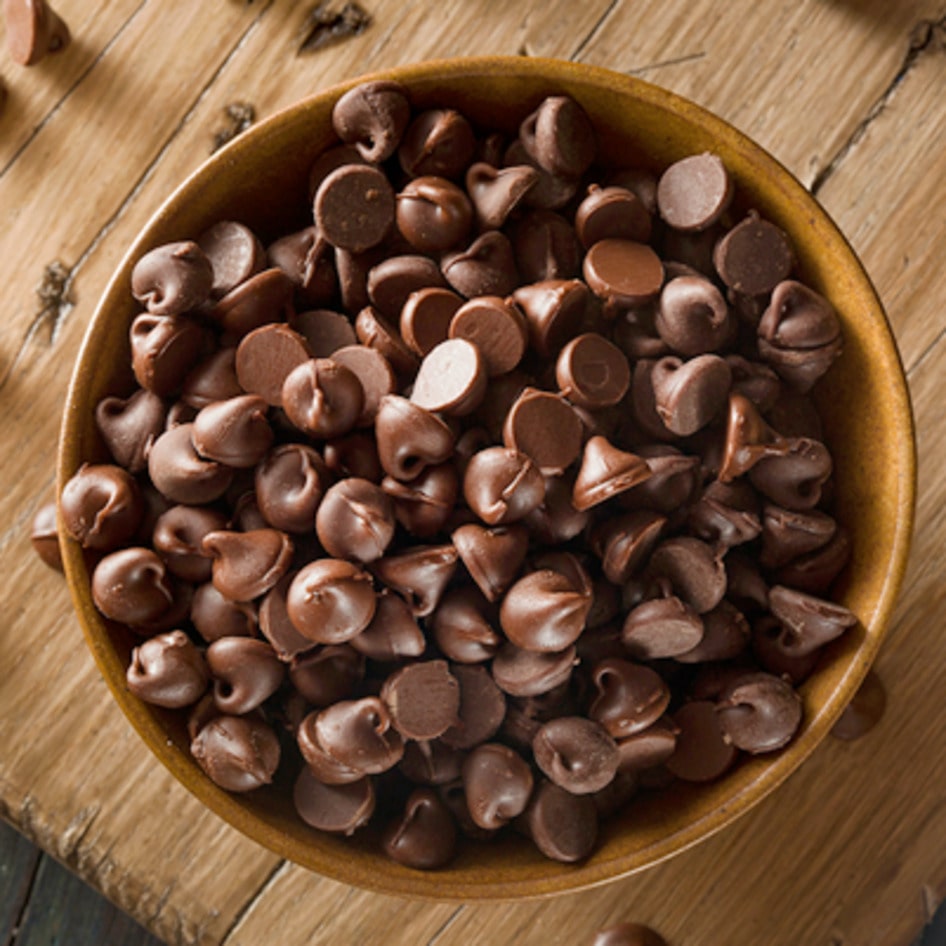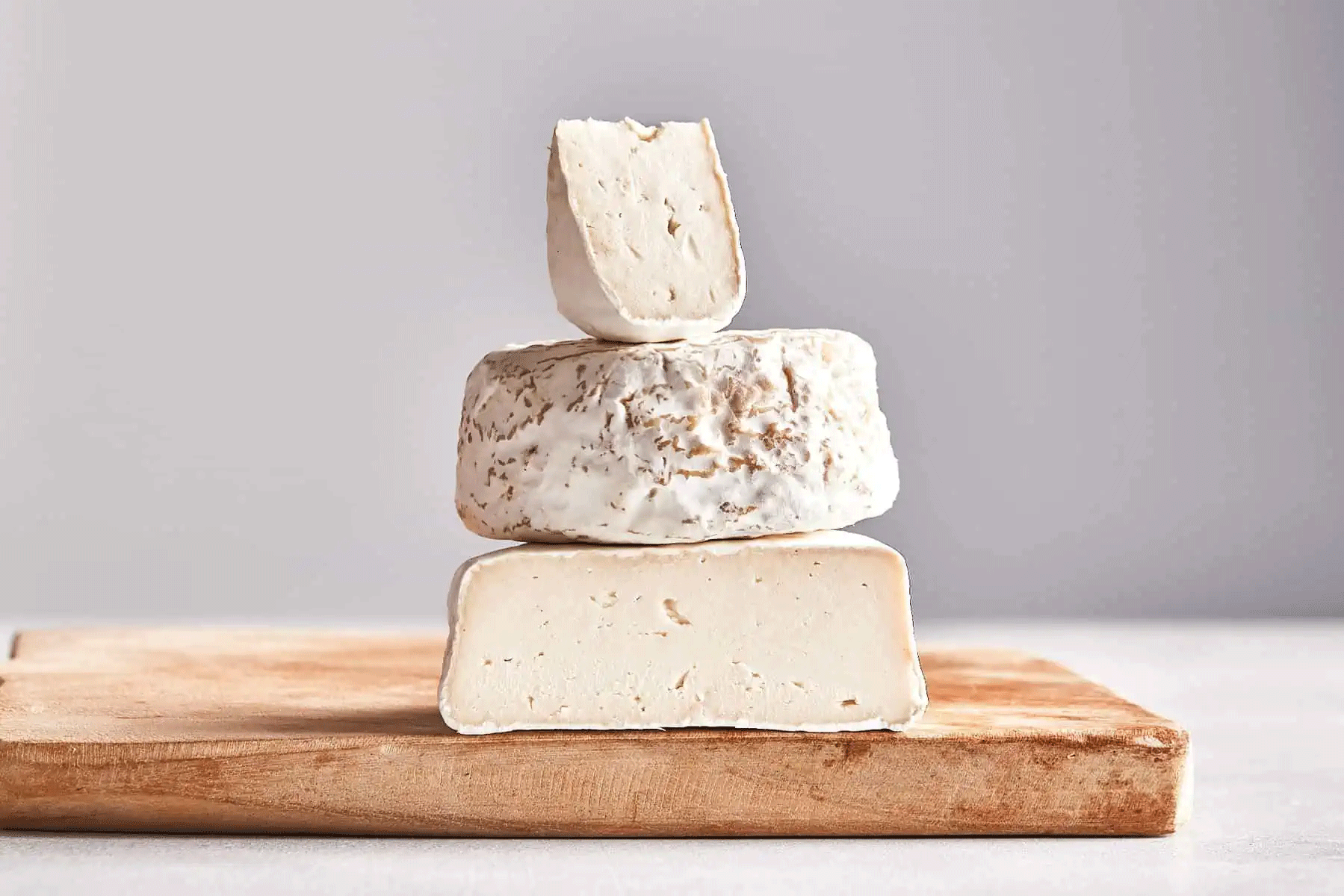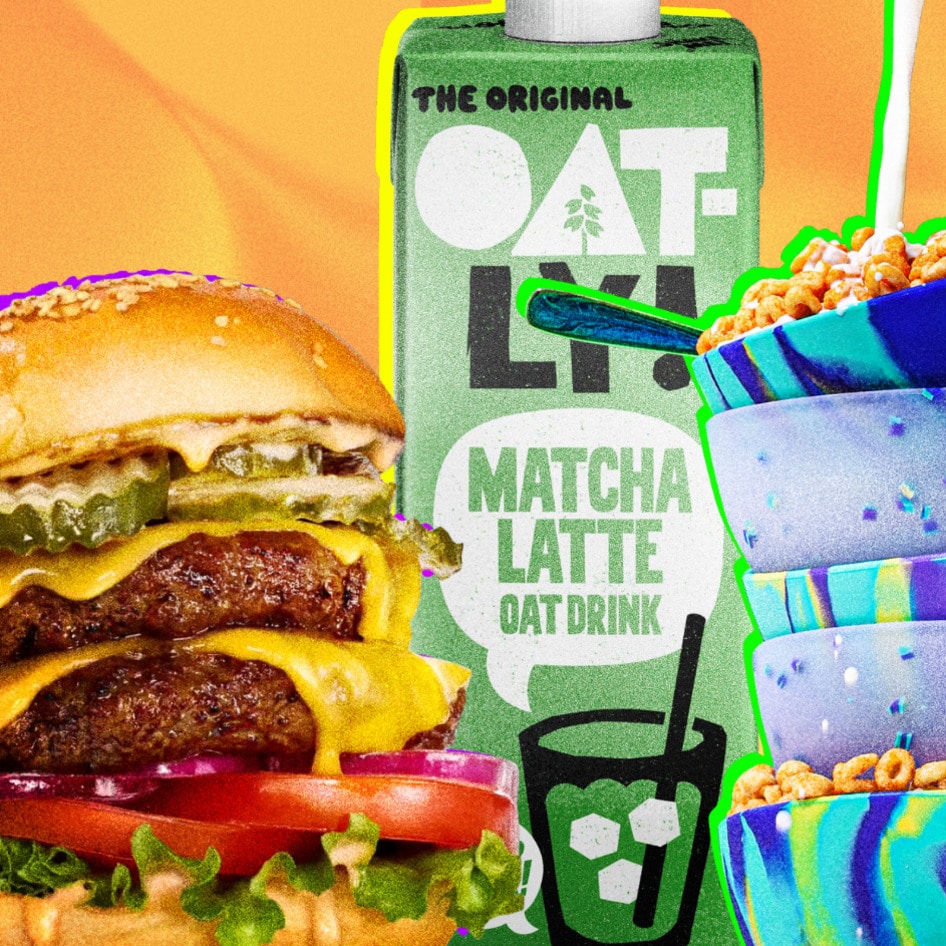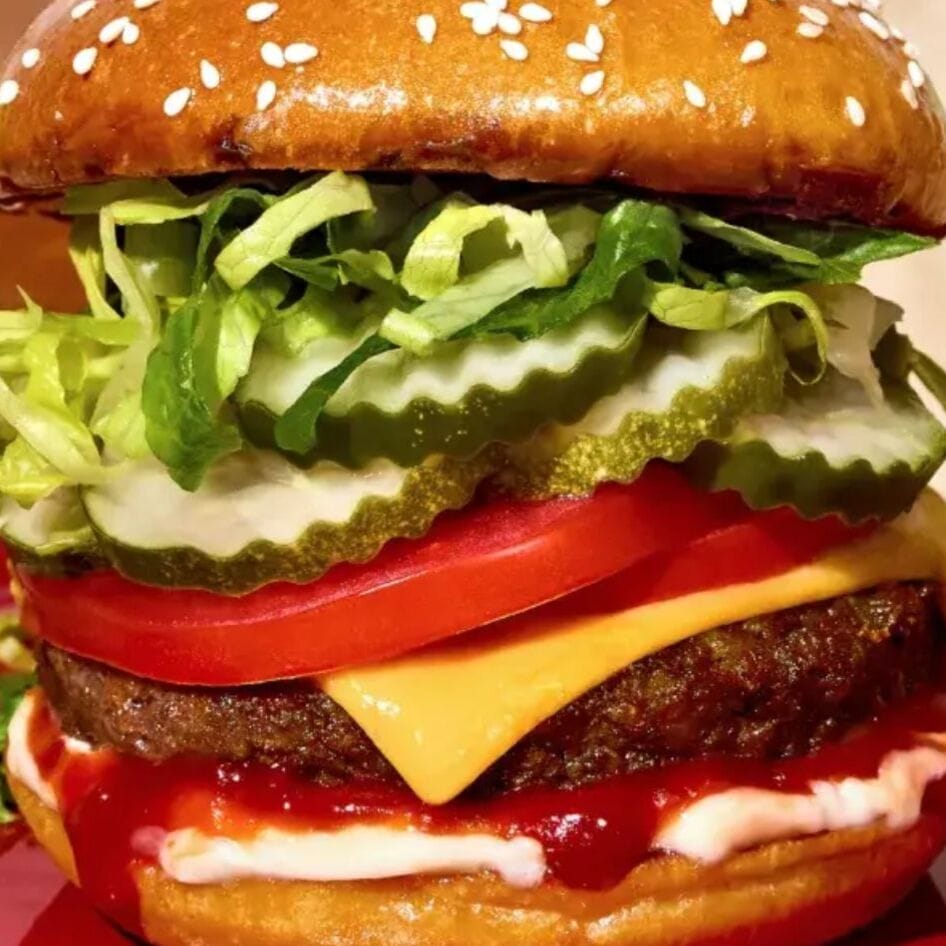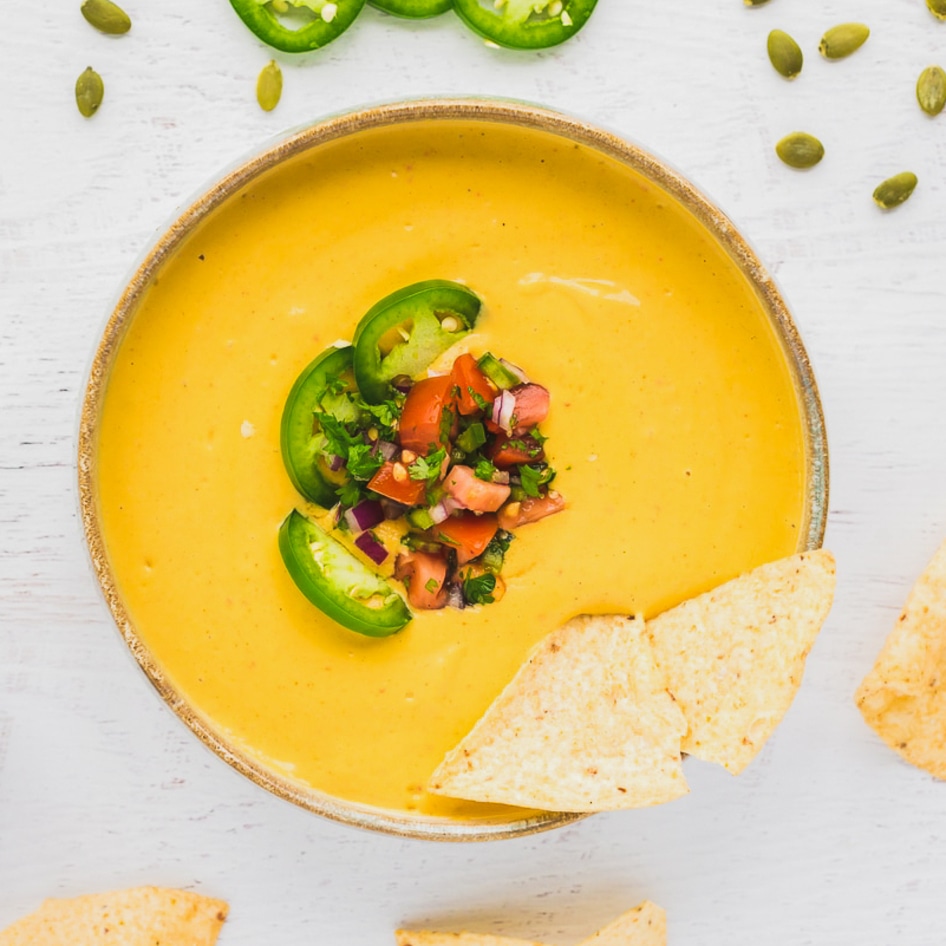From working to gaming, every facet of human life is being transformed by the artificial intelligence revolution in one way or another. While the idea of a robot takeover might feel uneasy, one sector that stands to be vastly improved with AI is the food industry. And California-based Climax Foods is kickstarting that revolution with a discovery that stands to change the way cheese is made for the better.
Today, the company announced that, with the help of its AI technology, it has uncovered a plant casein that mimics dairy in every way that matters. What’s so special about that? Casein is the functional protein that gives dairy all of those desirable qualities, such as stretch, melt, and browning.
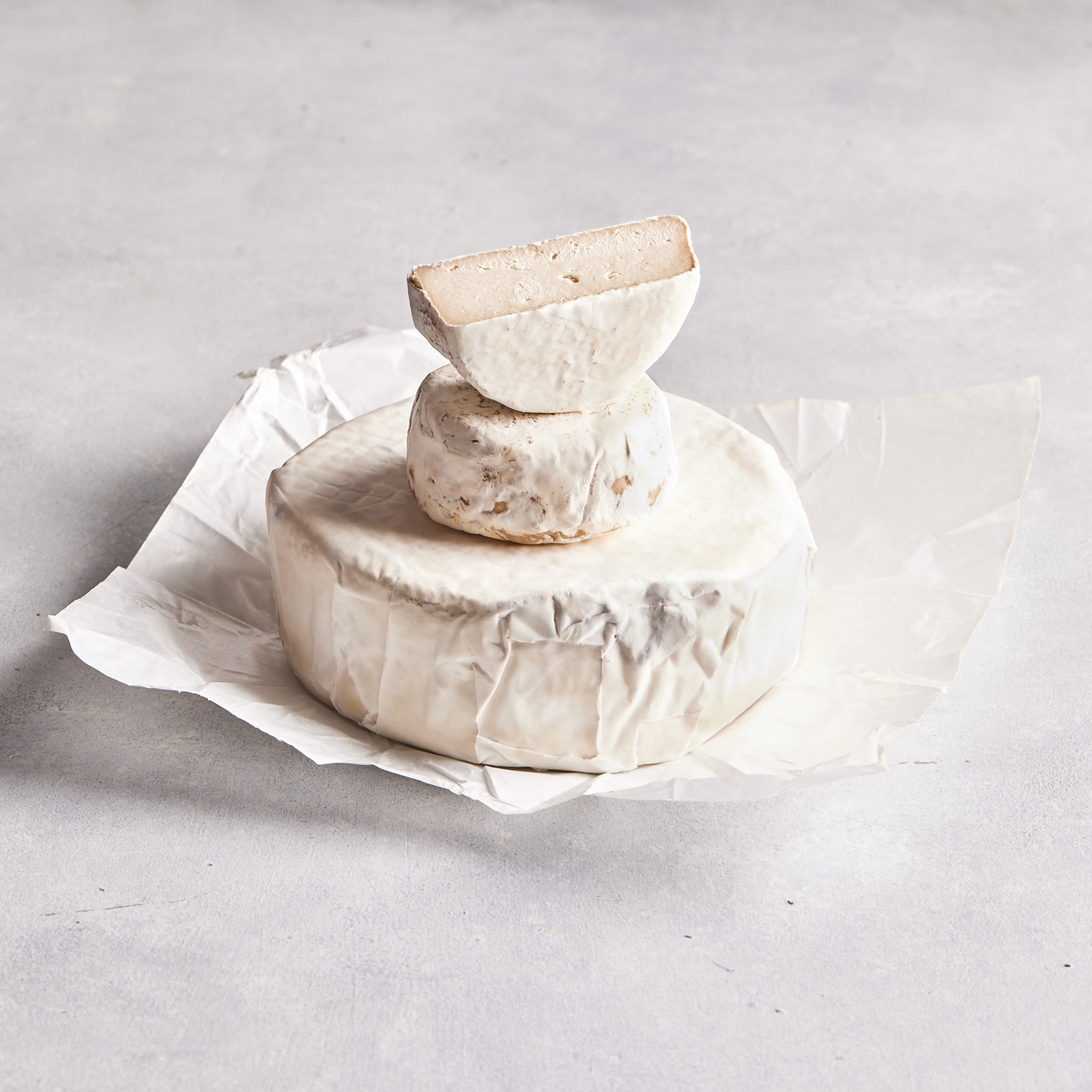 Climax Foods
Climax Foods
“As foodies and scientists, we have a profound appreciation for the complex flavors and textures of dairy products, but also recognize their vast inefficiencies—such as requiring 700 gallons of water to make one pound of cheese,” Climax CEO and Founder Oliver Zahn said in a statement “Our production process uses 500 times less water at our current pilot scale.”
Vegan cheeses are already a vast improvement over dairy when it comes to environmental metrics but in order to get consumers to embrace them, they have to taste and perform well. The problem with traditional vegan cheese is that it is made without functional proteins such as casein, which means they lack key dairy attributes, making them less desirable to consumers of traditional dairy cheese.
Climax’s discovery stands to improve the vegan cheese category as a whole—but its addressable market is much larger than vegans themselves.
“Our goal is not just to give vegans better options—we are offering a better way to everyone, especially hardcore cheeselovers,” Zahn said. “To do this, we committed ourselves to understanding, on a microscopic level, what makes animal-based foods so craveable, and used that understanding to determine the precise steps needed to get that same exact performance from plant sources like seeds.”
Transforming cheese with “precision formulation”
Making cheese by milking cows is not only cruel and environmentally damaging, it may soon become obsolete as an inefficient technology. Some companies have looked to using precision fermentation to create the building blocks of animal-free cheese. In this process, a microbe is instructed to take the place of a cow to produce desired proteins such as whey and casein.
A Harvard-trained astrophysicist and former thought leader at Google and SpaceX, Zahn says that Climax Foods is creating an even more efficient approach. Dubbed “precision formulation,” the company combines data science and machine learning together with human intuition to develop new, precise, formulas for vegan cheese.
These formulations are dairy-identical on a molecular level but without allergens or other unfavorable attributes.
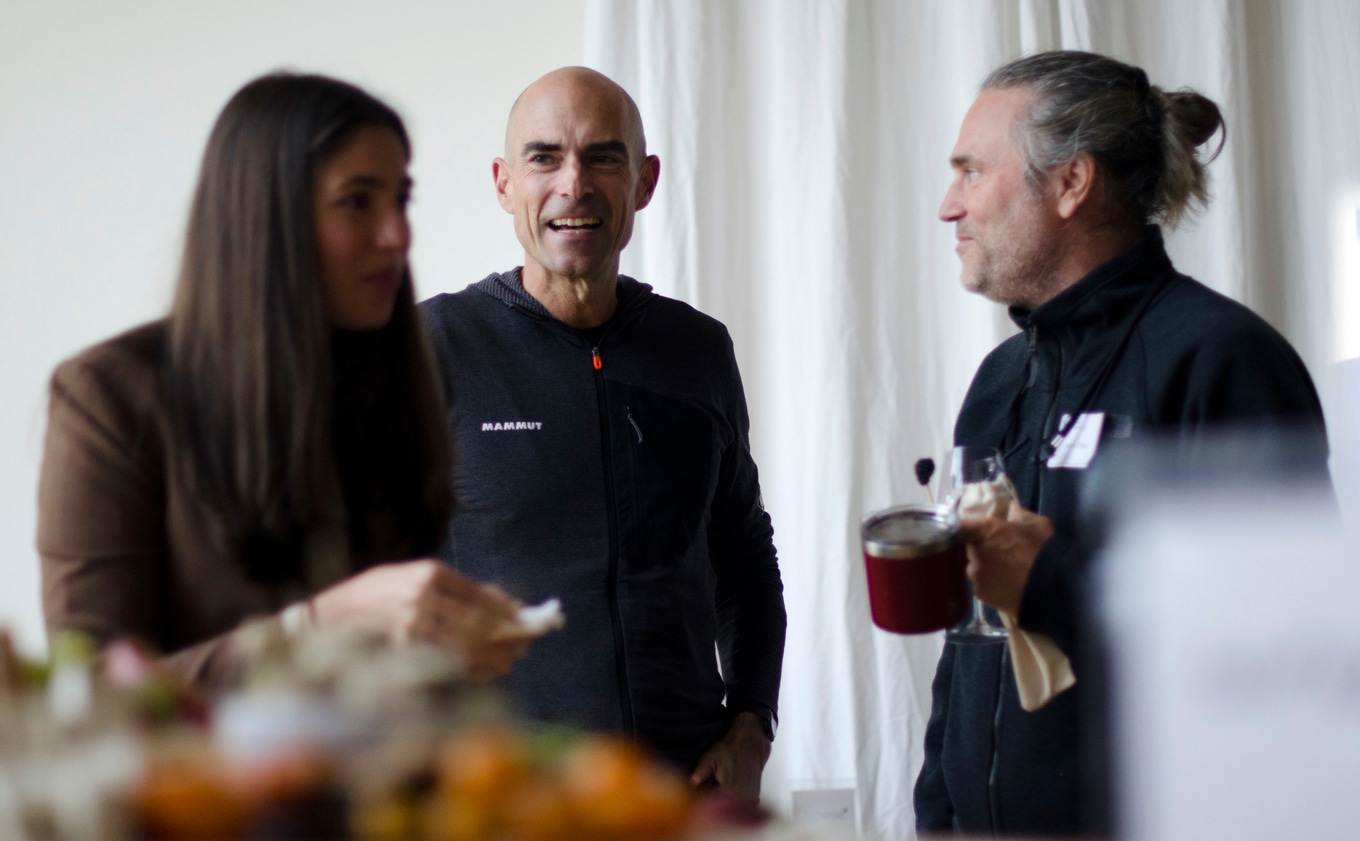 Climax Foods
Climax Foods
“We’re not changing any ingredients genetically; we’re using what is already there,” Zahn said. “The difference comes from our depth of knowledge of the rich biodiversity of the plant kingdom down to a cellular level. Plants can impart all of the same texture, taste, and performance of animal-based ingredients—our AI-enabled Deep Plant Intelligence platform takes away the guesswork.”
At its core, Climax’s Head of Protein and Texture Daniel Westcott says the company is dedicated to simultaneously embracing and advancing cutting-edge food technology while bringing food back to its simpler roots.
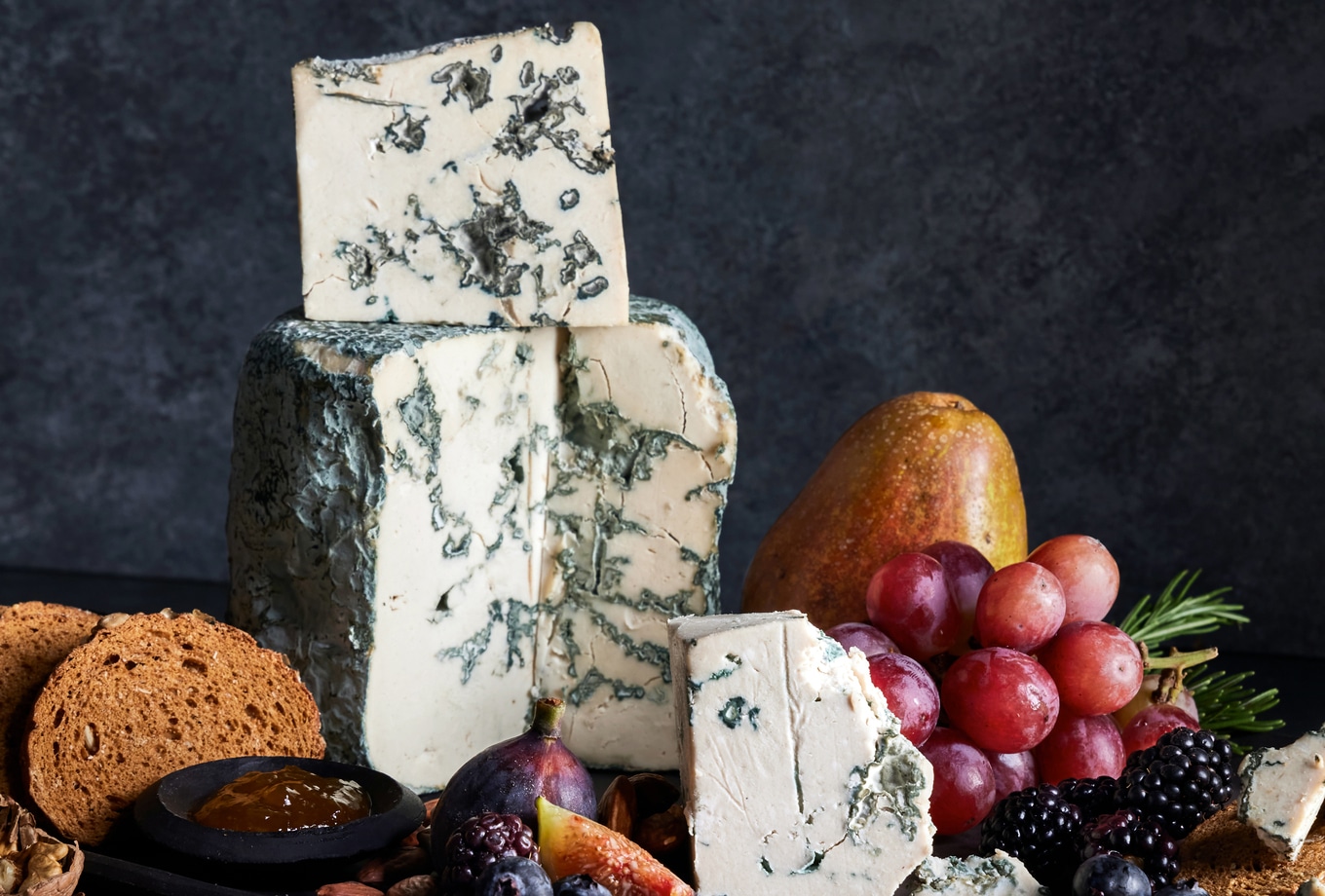 Climax Foods
Climax Foods
“While our work is based on a deep scientific understanding of plants, we don’t have any need to genetically engineer plants to create our unique proteins,” Westcott said in a statement. “An immeasurable range of protein diversity and combinations already exists; we simply use data science and machine learning to pay very, very close attention.”
“This gives us the ability to model and verify formulations at the microscopic level in a fraction of the time that it would take,” Wescott said.
And its plant casein discovery showcases what the more efficient future of cheese production might look like.
“For our casein replacement, our AI platform and precision formulation process helped us uncover a mechanism in specific plant proteins that imparts indistinguishable melt and stretch and mouthfeel from casein while also dramatically improving nutrition” Zahn said.
“This is one of the most important scientific breakthroughs in food in the last six thousand years—since humans invented animal agriculture—but we are only getting started,” Zahn said.
Climax is currently using its functional proteins and chèvre plant intelligence technologies to perfect animal-free versions of blue, brie, feta, and chèvre cheeses, which have already been embraced by acclaimed chefs Dominique Creen, Jean Georges Vongerichten, and Matthew Kenney. The company is also currently developing stretchy mozzarella utilizing its groundbreaking casein.
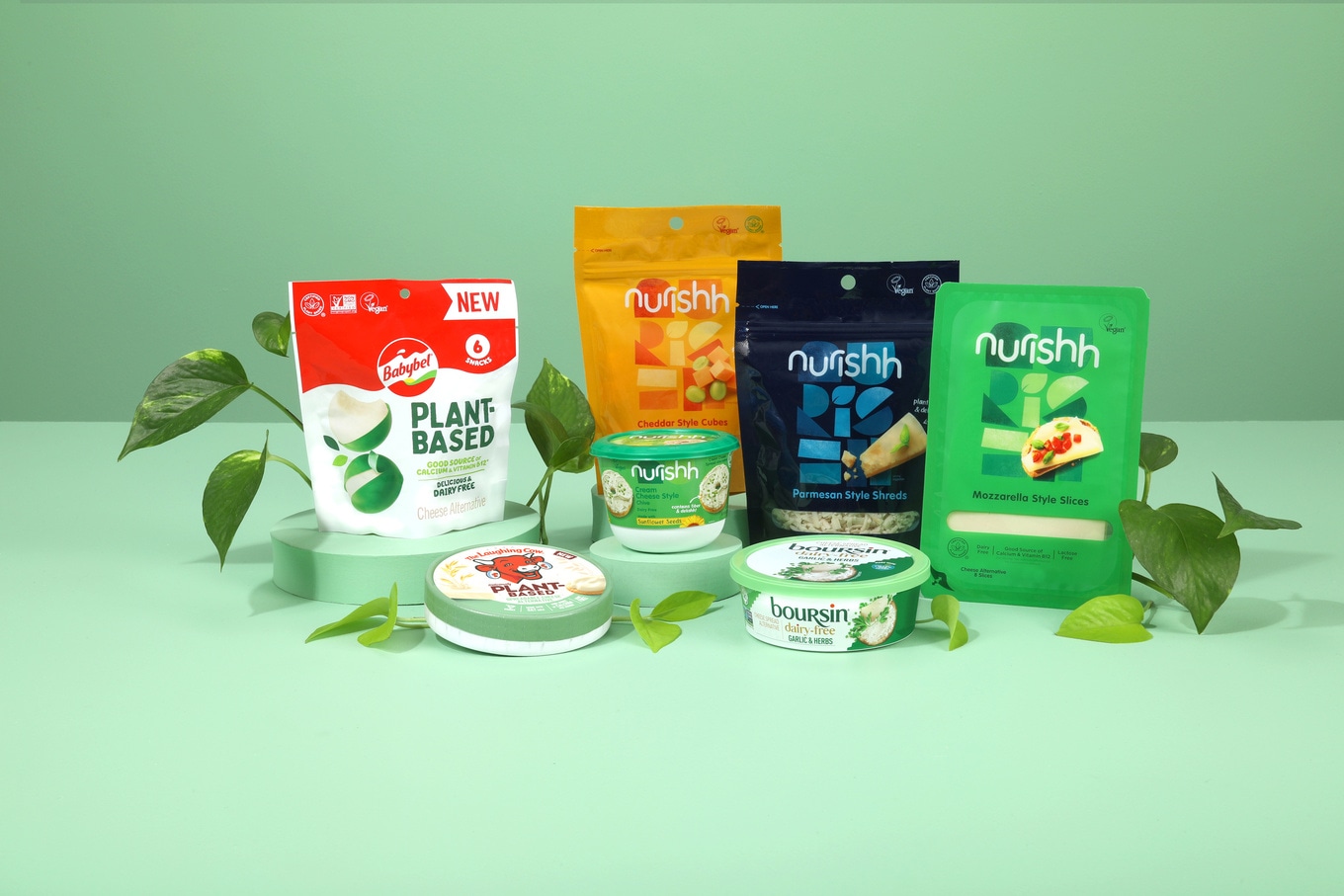 Bel Brands
Bel Brands
Earlier this year, Climax announced that it partnered with 150-year-old French dairy cheese giant Bel Group to reformulate some of its most iconic cheese products using its technology.
“Caseins are involved in all dairy transformations including cheese, yogurt, cream, and others,” Anne Pitkowski, Bel Group’s Director of Research and Applications, said in a statement. “They are directly responsible for the product texture, stability and, moreover, bring the very unique property of stretchability.”
“Those properties are linked to the specific micellar structure of the casein assemblage that, until Climax Foods’ discovery, had not been met anywhere else in nature,” she said.
While Bel already offers plant-based versions Babybel, Boursin, and The Laughing Cow, the Paris-based company is now working with Climax to retool these using its technology to bring consumers truly craveable vegan cheeses.
And while Climax is starting with cheese, its technology-driven approach has applications in replacing animal-derived foods on a larger scale.
A new age for vegan cheese pizzas
Climax’s plant casein discovery comes during a transformational time for the animal-free cheese sector.
In March, pioneering vegan company Daiya Foods announced that it has built out a fermentation plant within its existing production facility that will help improve the stretch and melt of its vegan cheeses.
“Our vision is to surpass dairy so that it can be better for you and better for the planet,” Daiya CEO Michael Watt told VegNews at a preview tasting of the new formulations. “We are literally reimagining the art of cheesemaking using traditional fermentation methods with plants.”
And last week, James Beard Award-winning Nancy Silverton previewed New Culture’s vegan mozzarella cheese—made using precision fermentation—on her menu at Pizzeria Mozza in Los Angeles.
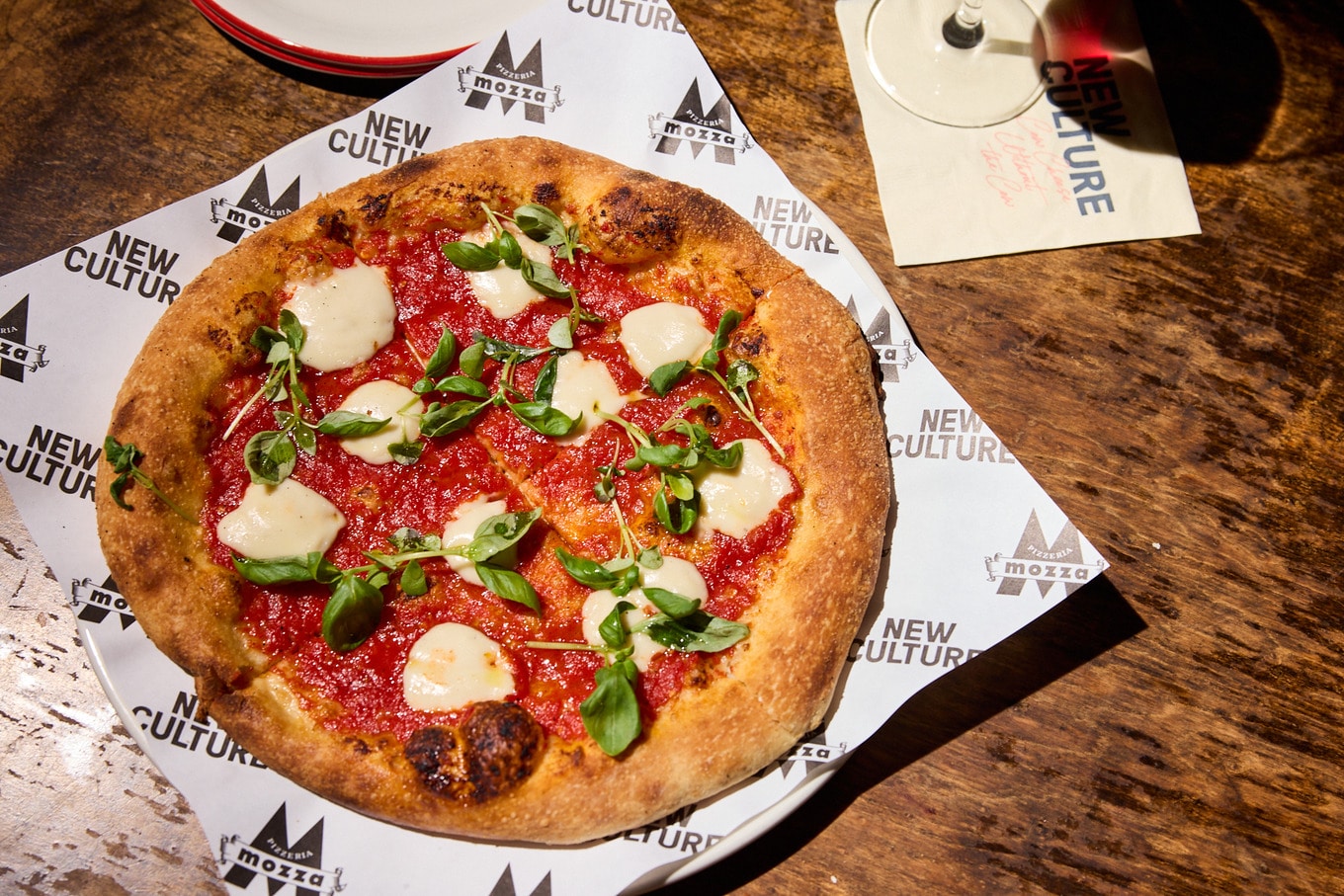 New Culture
New Culture
There, guests were treated to a four-course meal of arancini, eggplant parmesan, and two pizzas (built atop Silverton’s award-winning dough) that showcased the versatility of the animal-free cheese in chunks, shreds, slices, and more.
Pizzas made with New Culture’s animal-free mozzarella will hit the menu at Pizzeria Mozza locations in 2024.
For the latest vegan news, read:
JUMP TO ... Latest News | Recipes | Guides | Health | Subscribe

